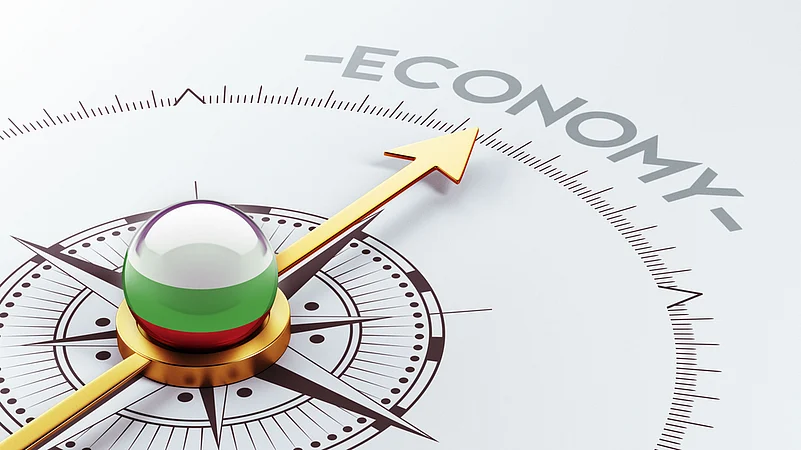Regardless of it taking a short while, Governments and Businesses all over the world have finally come to the realization of the coronavirus not being an equivalent to the recession in 2008; although both left a significant impact on the global economy regardless of the difference in the drivers propelling the market crisis during Covid-19.
As India and therefore the world plunges headfirst into a phase where the crisis wanes, Tax policies are likely to play a crucial role in the gradual recovery of the country’s economy. The decisions based on policies and measures taken forthwith are bound to leave an impression on the futuristic tax systems. Taxation is ‘a key ingredient in the social contract between citizens and the economy’ (Doing Business, 2018).
Deloitte's report 'Recovery from the Covid-19 crisis: What role will tax policy play', analyses the pivotal role rendered by tax in restoring the general public finances of countries. While the focus on the magnification of growth is imperative, it will be deemed ideal to carry this out by offering support for healthy growth, including stimulus packages that will successfully help expand tax revenues.
EY Global Vice Chair – Tax, Kate Barton compellingly presents, "as the tax ecosystem continues to evolve, tax authorities are not only experiencing substantive change but also driving it”.
“Tax and Fiscal Policy in Response to the Coronavirus Crisis”, a report by OECD, outlines that 'tax policy can contribute to covering the costs of the crisis'.
The contingency for escalated tax revenue is well understood but the timing and process of completion are critical as businesses and individuals are zealous to get back up and running. Taxes cannot afford to be perceived as an affixed burden to the pandemic-struck industries and businesses in the country that are debilitated from being vigilant of the Covid-19 aura of uncertainty hanging over the head.
The Basic Code
A recent Doing Business study divulges that firms in economies that score better on the study's ease of paying taxes indicates the tendency to perceive both tax rates and tax administration as less of a hindrance to business.
In their article “The Effect of Corporate Taxes on Investment and Entrepreneurship” for the American Economic Journal: Macroeconomics, Djankov, et al. Rabah Arezki, and Grégoire Rota-Graziosi worded their thoughts quite simply by saying that “designing taxes that are simple to administer is the way to go” for the post-Covid era.
Supporting a Consistent Economy
An additional fundamental approach would be to plan ahead for an imperishable source of increased tax revenue from growth through intensified business activity, profits, and surging employment.
What are the probable sources that India and other developing nations can tap into to increase tax revenue? One solution might not encompass all in this case. Specific groups of individuals and large corporations could be chosen through augmented income tax rates and/or base-broadening measures, new minimum taxes, wealth taxes, and other indirect taxes such as Digital Services Taxes (DSTs).
Incentives to drive investments
During the pandemic, digital emerged as indispensable when it came to the survival of organizations and individuals. Tax policies that incentivize digital infrastructure and operations can assist in encouraging investment in these areas (Deloitte.)
“For governments looking to drive economic recovery after the pandemic, supporting such digital competitiveness will be key. One way is through foreign direct investment (FDI) in the digital economy”, Matthew Stephenson and Nivedita Sen, World Economic Forum.
Transforming into an FDI hub whilst aiming for economic rejuvenation will not prove to be a small feat for India. Innumerous aspects of the economy have to be conducive to encourage this.
A Slant of Lucidity
For the post-COVID economy and going ahead, tax authorities and tax policymakers will have to regard transparency and accountability in a new light. The communication of the requisition and prominence of tax with all taxpayers in the country are to be carried out clearly and regularly.
In short
Taxes will inevitably rise but this is an opportunity to fix inconsistencies and inadequacies in the country’s tax system. It is imperative for policymakers to identify and work on areas for improvement. It is important to ensure that chasing tax revenue does not cause further despondence in the economy. The post-Covid economy should foster a transparent and reliable tax ecosystem in India that has a grip on the bigger picture and be citizen-centric. Can that be made a possibility?
The author is the Chairman of the Hilshaw Group
DISCLAIMER: Views expressed are the authors' own, and Outlook Money does not necessarily subscribe to them. Outlook Money shall not be responsible for any damage caused to any person/organisation directly or indirectly.


























